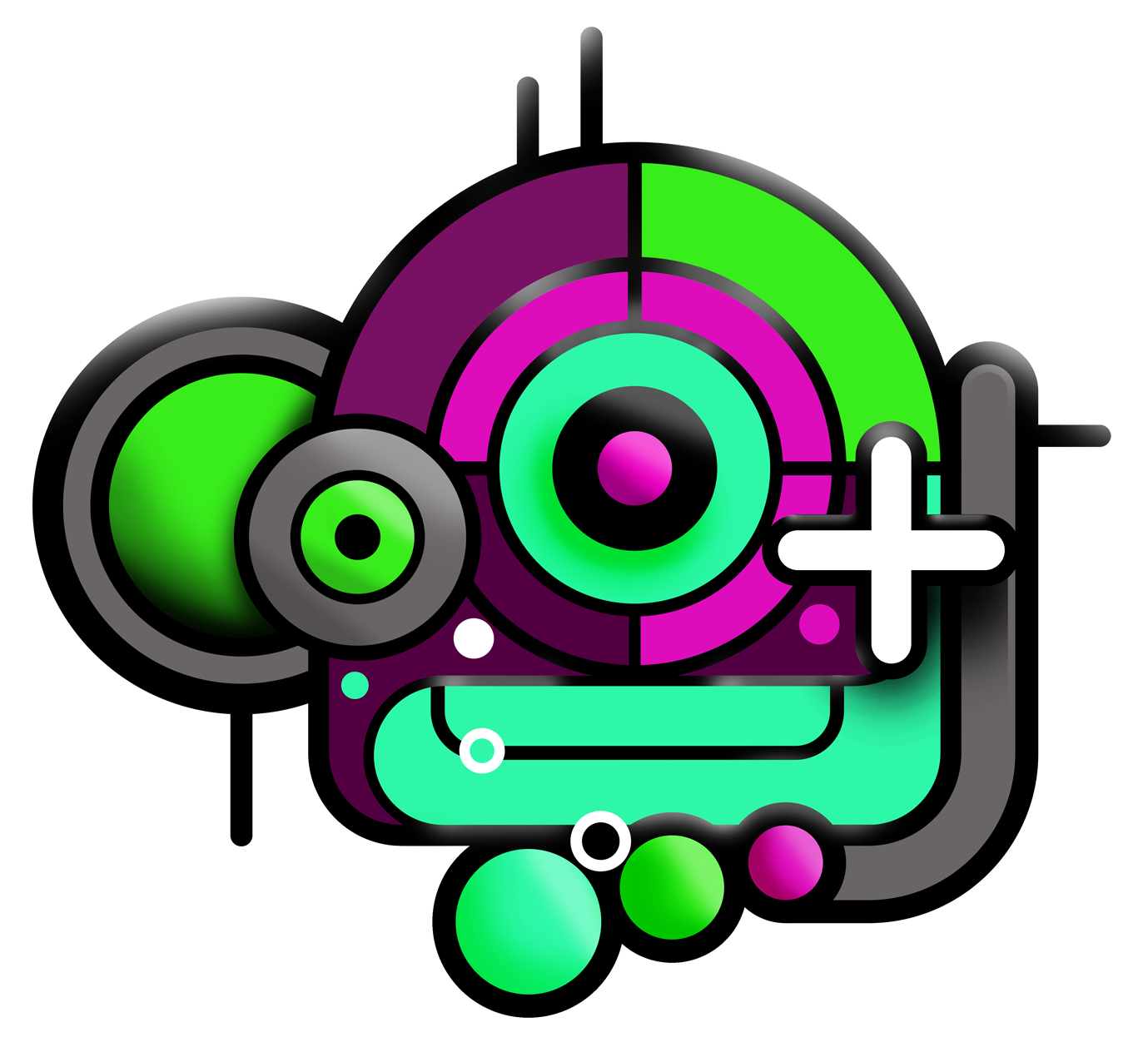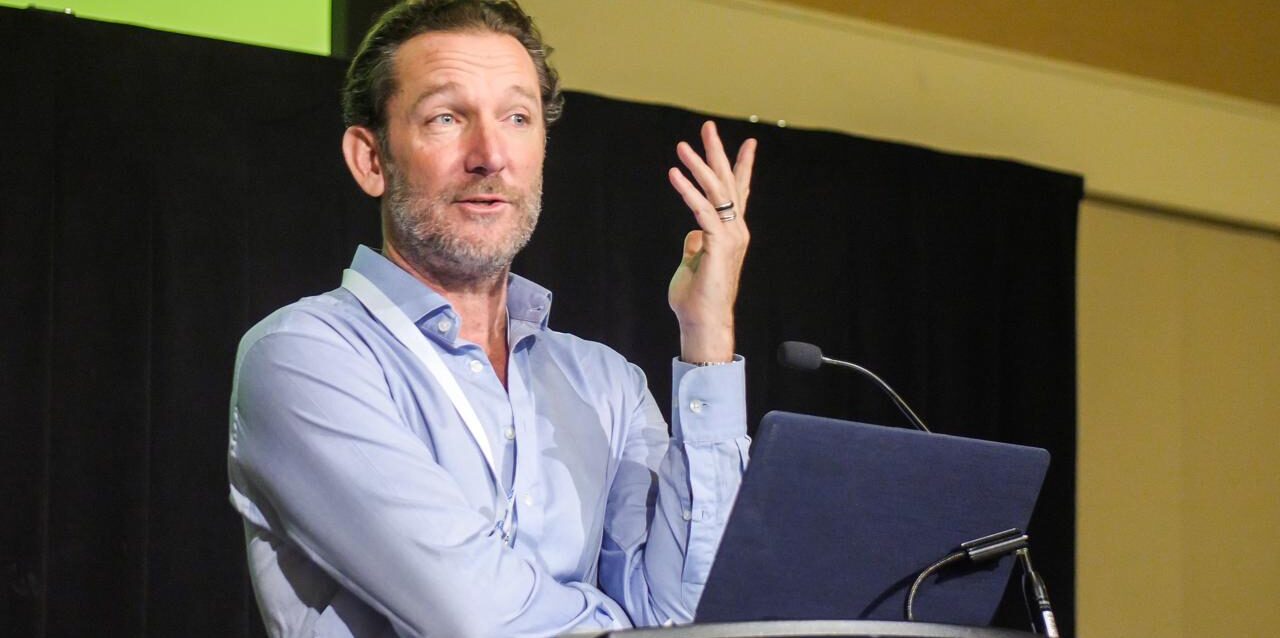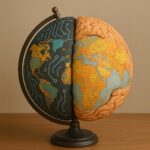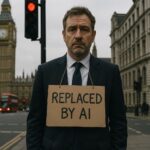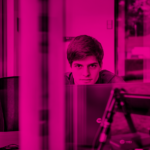By Dean McCoubrey head of Tech and Training
In my two jobs as a human-centric AI leader, and a GenZ social media and digital citizenship educator in schools, it’s evident we have an all-new and hyper unpredictable future to consider.
This requires adaptation on a whole new level. I would argue this is the greatest seismic shift to the future of work and workers in the past 50 or more years.
How so?
The World Economic Forum’s ‘Future of Jobs Report 2025’ paints a clear picture of the shifting employment landscape.
It confirms what many have sensed for years; AI is no longer an emerging tool, it is a wild, transformative force that will redefine the very landscape of work and for workers. But the way AI reshapes industries is not predetermined.
Just as social media was not inherently destructive at its inception, but became so due to misaligned incentives, AI’s impact will depend on how businesses, policymakers, and educators choose to integrate it into society.
We aren’t doing well at present, but it is still early days.
According to the World Economic Forum report, jobs that rely on structured, repetitive, and data-driven tasks are most vulnerable to automation, with fields like data analysis (87%), marketing-media creation (66%), and financial management (58%) at particularly high risk.
Meanwhile, roles requiring creativity, emotional intelligence, leadership, and hands-on expertise — such as teaching, therapy, and skilled trades — remain largely resilient. I hope so.
The analysis must go deeper. This isn’t just about which jobs will disappear and which will survive: it’s about the fact it is now inevitable and what kind of society we want AI to build.
Will it create efficiency and prosperity at the cost of human purpose? Or will we harness it to enhance human potential, rather than replace it? It all depends, really, on who sees the shadow side of an AI future and plays a role to cast light on it. And this comes right down to the average AI user, you and me.
We can be rest assured governments will be laggards in policy, so who will illuminate what “Good AI” is, or “AI for Good”. Who will show you the way with AI?
What the data really tells us
The World Economic Forum data suggests three emerging realities.
First, AI is one part eliminating employment for some; and another part fundamentally changing the job itself. Most professions will not vanish overnight, but tasks within those roles will shift, often requiring workers to adopt new skills and work alongside AI rather than compete with it.
Then, the greatest threat isn’t job loss, it’s economic disparity. AI’s efficiencies will disproportionately benefit those with access to technology, education, and training, widening the gap between AI-empowered workers and those left behind.
Finally, AI will force a redefinition of work itself. If machines can handle data analysis, programming, and even elements of creativity, what remains distinctly human?
The answer lies in judgement, ethics, empathy, and interdisciplinary problem-solving, skills that AI struggles to replicate.
There’s been a lot of death-knelling going on, but these findings are not a life sentence for human labour, if — and it is a big if — our leaders would start the process of migrating our schools and businesses through education, onboarding, even reassurance.
Post-Covid-19, we saw an opportunity to reimagine work beyond traditional structures. But that required an honest (forced) reckoning with the choices before us. Is this a similar inflection point?
The debate: efficiency vs humanity
We are at a crossroads. If left unchecked, AI could follow the same trajectory as social media, where profit-driven incentives shape technology in ways that erode human agency, rather than empower it.
When you divorce the success and wealth of the “supermodels” — Zuckerberg, Musk, Altman, et al — and ask if the world’s big tech platforms have been responsible for ongoing polarity or misinformation, and impending AI job loss, opinions get heated, and the trolling starts.
The C-Suite argument in favour of AI is compelling: automation removes inefficiencies, drives down costs, and boosts productivity.
Businesses that embrace AI will see higher output, reduced operational expenses, and streamlined decision making. In fields like medicine, law, and logistics, AI can improve accuracy, reduce human error, and accelerate processes. Some business leaders are licking their lips, while others are nervous an AI-centric competitor will leapfrog over their heads.
For workers, AI could eliminate tedious, repetitive tasks, freeing them to focus on higher-value, strategic, and creative work. That is, if their employers still see value in them.
In this version of the future, AI doesn’t destroy jobs, it enhances human potential, unlocking new levels of innovation and wellbeing. That would take empathy and consciousness, compassion for workers in this seismic change, and leadership to help smooth the migration from the good old days (like 2019) to the imminent 2030 AI-human future.
The case against unregulated AI adoption
History warns us that technological advancements often prioritise efficiency at the cost of human dignity.
Just as the industrial revolution led to worker exploitation before labour rights caught up, AI, if driven purely by profit, could lead to mass layoffs, economic inequality, and a reset of the skills required in the workforce. Not great news if you studied years for your degree. And worked your way up the corporate ladder.
The World Economic Forum report already signals that fields like data entry, financial management, and even creative marketing are at high risk of automation. If corporations choose short-term cost-cutting over long-term workforce development, the impact could be severe: entire job sectors could collapse before workers have time to transition into new roles.
There is also the question of meaningful work. If AI absorbs vast amounts of intellectual and creative labour, what is left for humans? Work has historically been more than just economic survival, it has been a source of purpose, community, and self-worth. If automation strips away too much, we risk an identity crisis at scale.
Our responsibility: What must be done?
When it comes to emerging tech, visible and public leadership that is wide awake feels hard to find, and yet the future of AI in the workplace will be determined by the conscious decisions leaders make today.
That responsibility falls on multiple groups.
Policymakers must act now, not later. Governments need to set guardrails before AI adoption accelerates beyond control. This means: Incentivising reskilling programmes, companies that deploy AI must reinvest in training workers, not just automation; regulating AI ethics, ensuring that AI-driven decision-making (such as hiring, lending, and policing) is transparent, fair, and accountable; taxing AI-based job replacement, creating funding for workforce transition programmes.
Businesses must rethink workforce strategy: forward-thinking companies must see AI not as a cost-cutting tool, but as a workforce enhancement strategy. The companies that thrive in the AI era will be those that empower their employees, not replace them.
AI should take over repetitive tasks, but companies must train employees to shift into higher-value roles; workplaces should adopt AI-human collaboration models rather than full automation.
Educators must adapt the curriculum: the traditional education model is obsolete in the AI era. Schools and universities should shift focus from memorisation and standardised testing to interdisciplinary learning, combining technology, humanities, and critical thinking; AI literacy for all, not just for techies or engineers, but for every profession; lifelong learning infrastructure —education cannot stop at graduation; reskilling must be ongoing.
Course correction: a vision for ethical AI adoption
If the past decade of social media has taught us anything, it’s that public pressure works.
Business leaders must demand transparency, accountability, and human-centric AI usage because everyone will work on a more even playing field.
Instead of mass layoffs, businesses could invest in continuous workforce development; instead of AI replacing teachers, it could enhance education with personalised learning; instead of corporations using AI purely for profit, they use it to address global challenges: climate change, healthcare access, and economic disparity.
Consider, for just a moment, if all Generative AI inventors only launched AI with a filter to do good, as though it was impossible that AI could be destructive or do anything harmful.
An army of robots incapable of bad.
Consistently, tech regulation has arrived only after harm was done. Greed got out of the blocks faster. Much faster. So, for a positive Generative AI future to happen, we must act before the consequences are irreversible.
The question is: Will we rise to the occasion?
My answer: without awake and aware leaders who will each do their individual bit, I doubt it. Humans drive the creation, maintenance and output of emerging technology, but share prices (or votes) often drive many of those human platform originators, in turn. It’s no coincidence they are among the richest people on the planet.
Need a marketing agency? One that harnesses the power of AI for efficiency and results? And, most importantly, one driven by people who care about other people, the planet, and society?
At Humaine, we blend AI with human expertise to deliver smarter, faster, and more impactful outcomes—because the future of business isn’t just about profit; it’s about purpose.
Extraordinary Together.


